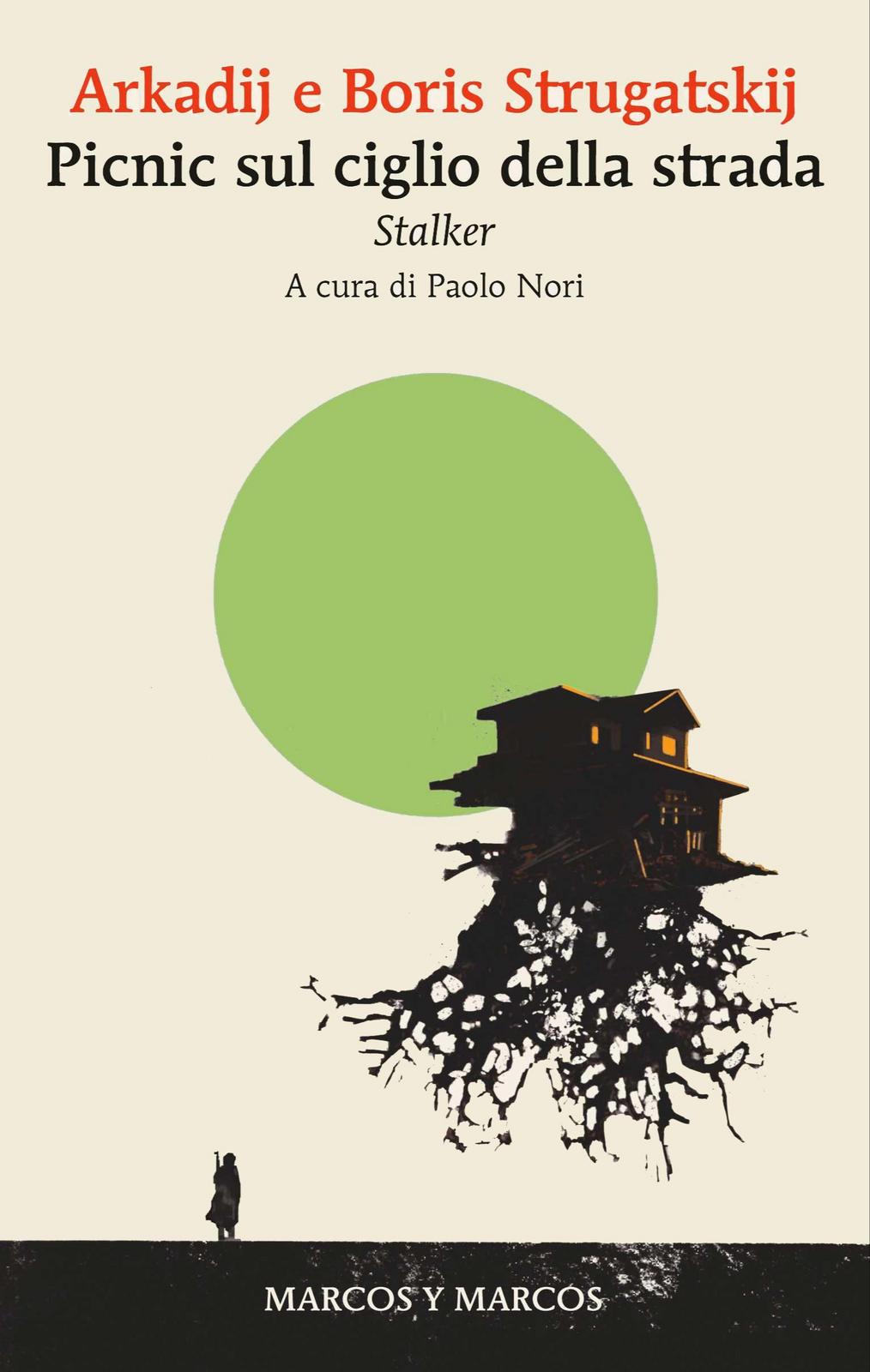270 orrialde
Italian hizkuntza
2022ko aza. 26a(e)an Marcos y Marcos(e)n argitaratua.

270 orrialde
Italian hizkuntza
2022ko aza. 26a(e)an Marcos y Marcos(e)n argitaratua.
Roadside Picnic (Russian: Пикник на обочине, Piknik na obochine, IPA: [pʲɪkˈnʲik nɐ ɐˈbotɕɪnʲe]) is a philosophical science fiction novel by Soviet-Russian authors Arkady and Boris Strugatsky, written in 1971 and published in 1972. It is the brothers' most popular and most widely translated novel outside the former Soviet Union. As of 2003, Boris Strugatsky counted 55 publications of Roadside Picnic in 22 countries.The story is published in English in a translation by Antonina W. Bouis. A preface to the first American edition was written by Theodore Sturgeon. Stanisław Lem wrote an afterword to the German edition of 1977. The book has been the source of many adaptations and other inspired works in a variety of media, including stage plays, video games, and television series. The 1979 film Stalker, directed by Andrei Tarkovsky, is loosely based on the novel, with a screenplay written by the Strugatsky brothers. The term stalker became …
Roadside Picnic (Russian: Пикник на обочине, Piknik na obochine, IPA: [pʲɪkˈnʲik nɐ ɐˈbotɕɪnʲe]) is a philosophical science fiction novel by Soviet-Russian authors Arkady and Boris Strugatsky, written in 1971 and published in 1972. It is the brothers' most popular and most widely translated novel outside the former Soviet Union. As of 2003, Boris Strugatsky counted 55 publications of Roadside Picnic in 22 countries.The story is published in English in a translation by Antonina W. Bouis. A preface to the first American edition was written by Theodore Sturgeon. Stanisław Lem wrote an afterword to the German edition of 1977. The book has been the source of many adaptations and other inspired works in a variety of media, including stage plays, video games, and television series. The 1979 film Stalker, directed by Andrei Tarkovsky, is loosely based on the novel, with a screenplay written by the Strugatsky brothers. The term stalker became a part of the Russian language and, according to the authors, became the most popular of their neologisms. In the book, stalkers are people who trespass into the forbidden area known as the Zone and steal its valuable extraterrestrial artifacts, which the stalkers sell. The authors say they took the term from the Stalky & Co novel. In Russian, after Tarkovsky's film, the term acquired the meaning of a guide who navigates forbidden and uncharted territories; later on, fans of industrial tourism, especially those visiting abandoned sites and ghost towns, were also called stalkers.